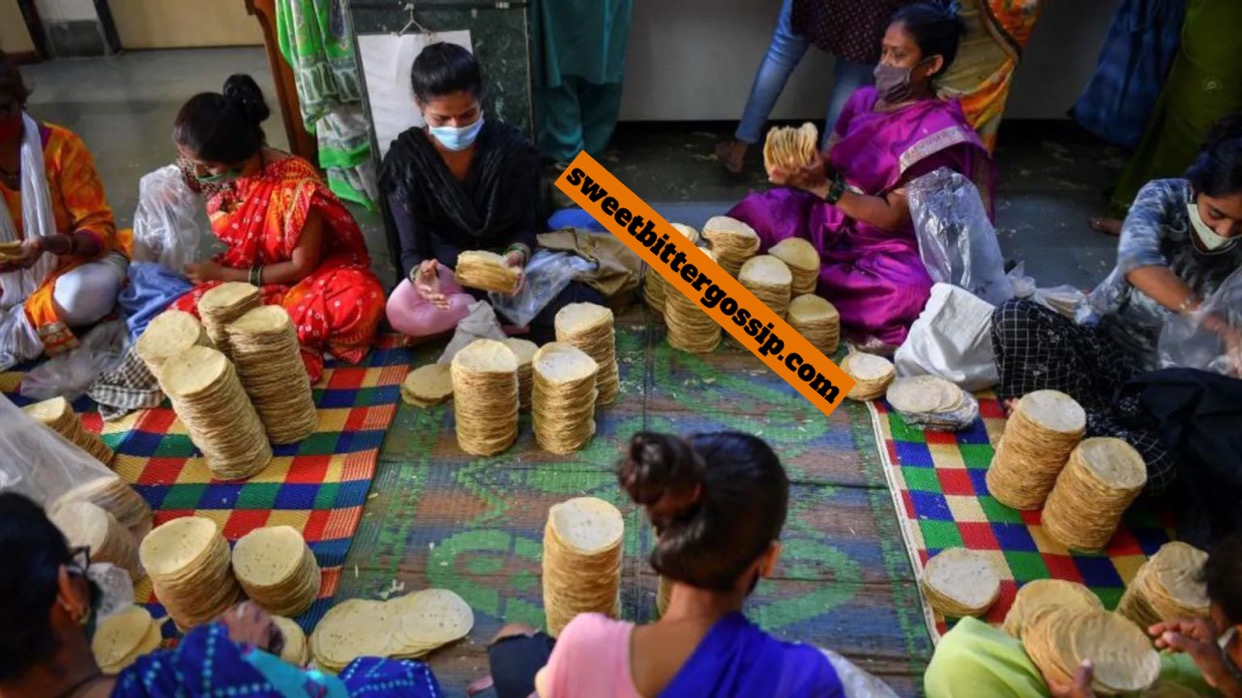On a crisp December morning, a group of women, dressed in vibrant saris and warm shawls, gathered outside a three-story building in a bustling neighborhood of Delhi. Inside, the operations of one of India’s most influential social enterprises were in full swing. Shri Mahila Griha Udyog Lijjat Papad, as the co-operative is now known, began as a modest venture in 1959 in Mumbai by seven housewives, who sought to support their families by making poppadoms (crispy snacks commonly enjoyed in Indian meals).
Since its inception, the co-operative has grown into a nationwide network, with over 45,000 women as members. Today, it boasts an impressive annual turnover of 16 billion rupees (around $186 million), and its products, including detergents, spices, and chapatis, are sold in India and exported abroad. Yet, its most beloved product remains its Lijjat Papad, which has become a symbol of empowerment.
For women like Lakshmi, who manages the Delhi branch of the co-operative, joining Lijjat was a life-changing decision. “Lijjat is a temple for us,” she says. “It provides a means to earn and sustain our families.” Lakshmi, 70, became a member decades ago after her husband’s death left her struggling to make ends meet. With no formal education, she turned to the co-operative, where she quickly found a steady income, balancing her responsibilities at home with her work. “I used to spend hours rolling the dough into poppadoms. Now, I can make 1kg in just half an hour,” she shares.
The operation of the co-operative is designed for flexibility. Each member takes home pre-mixed dough and, in their spare time, rolls and dries the poppadoms before returning them to the local centre for packaging. From there, the products are distributed to retail outlets. This home-based model allows women to earn an income while still managing household duties, providing a level of independence that was previously out of reach for many.
The success of Lijjat Papad is deeply rooted in India’s socio-political context during the late 1950s. With a newly independent nation striving to rebuild itself, women faced significant barriers, both in terms of education and access to employment. The seven founding women—Jaswantiben Jamnadas Poppat, Parvatiben Ramdas Thodani, and others—chose to work from home, drawing upon the culinary skills passed down through generations. A loan of just 80 rupees from a social worker helped them get started, but it was their resilience and creative approach that ultimately led to success.
Over time, as more women joined the co-operative, Lijjat evolved into a more democratic and inclusive workplace. Unlike traditional corporations, the co-operative operates on a model where every member is a co-owner with equal rights, including decision-making and sharing profits. “We all share profits and losses,” says Swati Paradkar, the current president of the co-operative. “That’s the secret to our success.”
The brand name “Lijjat” itself was a product of collaboration. In 1966, the Khadi Development and Village Industries Commission suggested the co-operative come up with a brand. When members proposed names, one of their own suggested “Lajjat,” which was later modified to “Lijjat,” meaning “taste” in Gujarati.
Lijjat Papad has transformed the lives of countless women. Lakshmi, for example, has used her earnings to educate her children, build a house, and secure their futures. “It’s not just about the money,” she says. “It’s about the respect and dignity I have gained.”
Nick Clegg Steps Down from Meta Amid Trump’s Return to Power
Sir Nick Clegg, former UK deputy prime minister and president of global affairs at Meta, is leaving the company after nearly seven years. In an announcement shared on Facebook, Sir Nick revealed his decision to step down and “hand over the reins” to his successor, Joel Kaplan, who has been with Meta as a senior executive and is well-known for managing the company’s relations with Republicans.
Kaplan, a former deputy chief of staff in President George W. Bush’s administration, will now lead Meta’s global affairs department at a crucial time. With Donald Trump preparing for his return to the White House, tensions between Meta and the president-elect have been a focal point. Trump has long criticized Meta for what he perceives as censorship of conservative voices. His relations with Zuckerberg were further strained when Meta suspended Trump’s accounts after the January 6 Capitol riot. However, following the election, there are signs that Trump and Zuckerberg may be mending their relationship.
Sir Nick’s departure is seen by many as signaling a new political era, particularly with Trump’s return to power. When Sir Nick joined Meta in 2018 after losing his parliamentary seat, he quickly rose through the ranks, becoming a key figure in bridging the divide between big tech and governments. During his tenure, he helped establish Meta’s Oversight Board, an independent group tasked with reviewing content moderation decisions.
Sir Nick has also been a vocal critic of other tech leaders, including Elon Musk, whom he accused of turning Twitter (now X) into a “hyper-partisan platform.” Despite his time at Meta being marked by challenges, including widespread criticism over misinformation, Sir Nick expressed pride in his work. He stated, “I hope I have played some role in bridging the very different worlds of tech and politics.”
Now, as Kaplan takes over, Meta faces the challenge of navigating the complexities of government regulation, user privacy, and free speech—issues that will likely intensify as the political landscape shifts with Trump’s presidency. Sir Nick’s resignation marks a pivotal moment in the intersection of technology and politics, as Meta prepares for the next chapter in its relationship with the global community.

